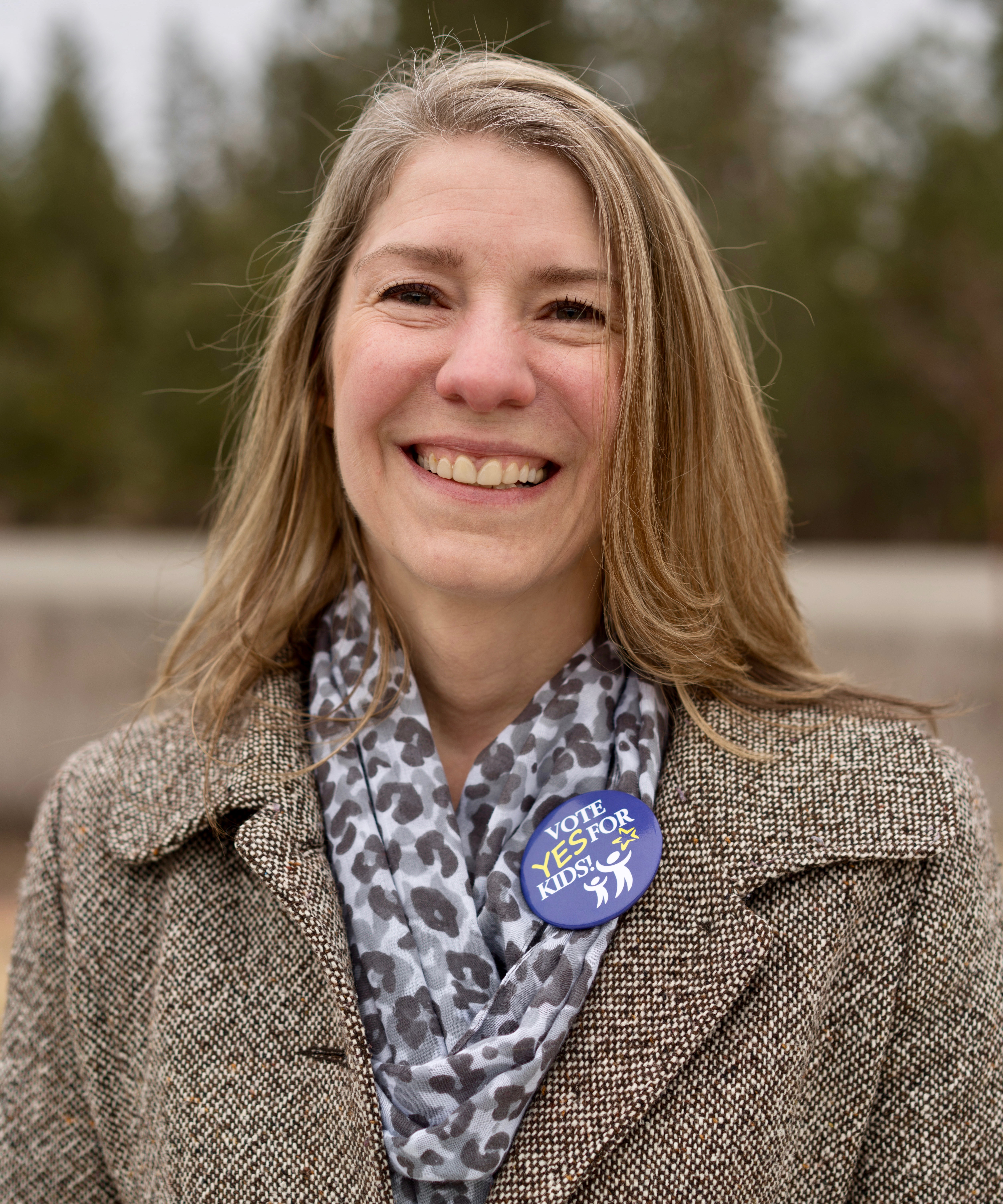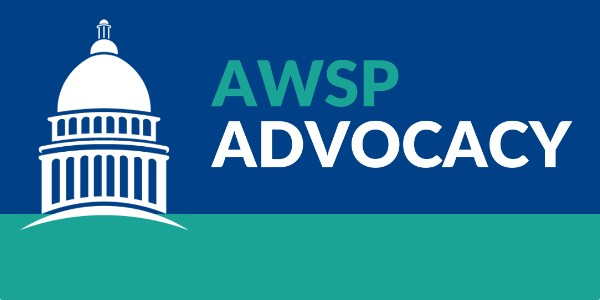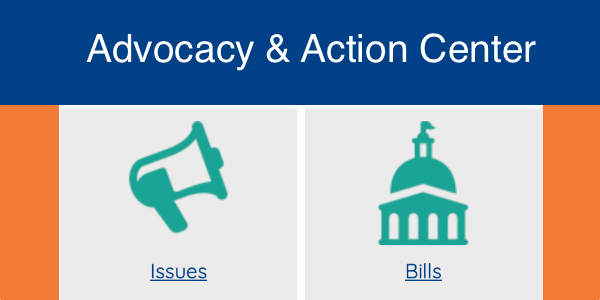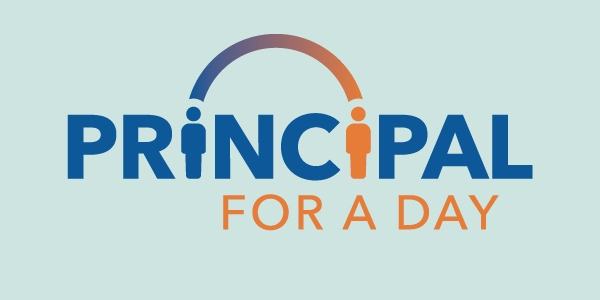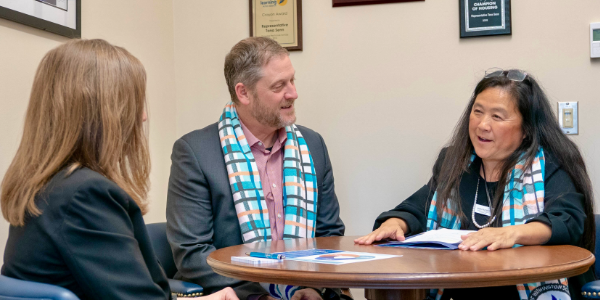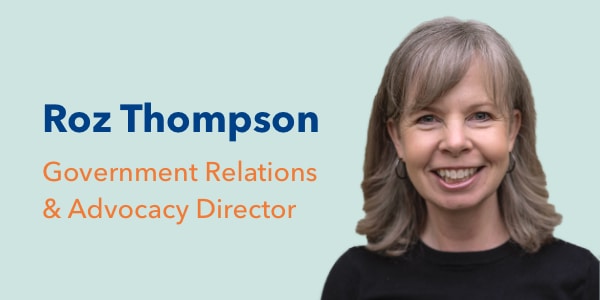This year’s legislative session kicked off on Monday, January 9th, and the Capitol was hopping! It was so great to see legislators, staffers, lobbyists, and other people bustling around the buildings and walkways of the Capitol Campus. For the most part, things feel the same as they did in 2020 when legislators last met in person. There are some new security features, such as metal detectors prior to going into the gallery sitting areas of the House and Senate floors, and there are more locked doors in the Cherberg and O’Brien office buildings. But, there are plenty of friendly faces to greet you in hearing rooms or escort you to members’ offices.
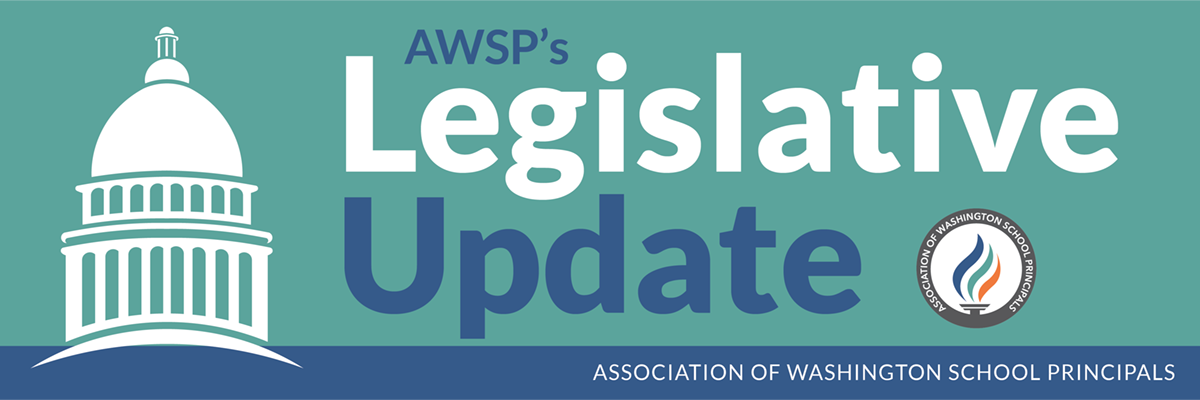
Session Begins!
This year’s legislative session kicked off on Monday, January 9th, and the Capitol was hopping! It was so great to see legislators, staffers, lobbyists, and other people bustling around the buildings and walkways of the Capitol Campus. For the most part, things feel the same as they did in 2020 when legislators last met in person. There are some new security features, such as metal detectors prior to going into the gallery sitting areas of the House and Senate floors, and there are more locked doors in the Cherberg and O’Brien office buildings. But, there are plenty of friendly faces to greet you in hearing rooms or escort you to members’ offices.
Budget
The first part of the week focused on the opening activities of the session, including getting 29 new members sworn in and listening to Governor Inslee’s State of the State Address. Both the Senate Ways and Means and House Appropriations Committees begin their committee hearings by listening to testimony about the Governor’s budget. The common theme from education advocates was the need for additional funding for special education and transportation. I submitted written testimony emphasizing the need for additional funding for principal internship and mentorship programs.
Policy Committees
Many committee chairs use the beginning of a long legislative session to hold “work sessions” on various topics so that new members can get up to speed on current issues, reports, or even on the history of bills passed in that area. House Education did just that, holding two different work sessions on the history of K-12 education and funding in our state, and the impacts of the COVID-19 pandemic on education. The Washington Joint Legislative Review and Audit Committee (JLARC) presented its preliminary findings on the Racial Equity Effects of Restricting In-Person Learning During the Pandemic. Senate Early Learning and K-12 Education, however, jumped right into bill hearings.
Bills heard this week in Senate Education included bills encouraging bone marrow instruction in schools, lowering the age to enroll in schools to age 6 (from age 8), changing the notification date for nonrenewed contracts to June 1, creating the Purple Star Award, and removing classified staff from the definition of PSES staff to ensure that the enhanced funding to the prototypical model is being spent on these specific certificated staff (nurses, counselors, psychologists, etc.)
Principal Bills
The highlight of the week for AWSP was the Senate Education Committee hearing on Thursday, where our two principal (and assistant principal) bills were heard. Senator Lisa Wellman, who chairs this committee, is the prime sponsor for both bills. SB 5175 would allow districts to offer principals contracts of up to three years. SB 5085 would update the terms of employment for principals and assistant principals to do these things:
Remove statutory limitations on the scope of collective bargaining for bargaining units containing only supervisors, or principals and assistant principals, or both.
Require the citation of specific evaluation criteria when transferring a principal or an assistant principal to a subordinate certificated position.
Require that years of administrator experience count towards total years in future positions when a principal or assistant principal is transferred to a nonadministrative subordinate position.
Apply employment provisions relating to principals to assistant principals as well.
Specify that in addition to whether an applicant has ever been placed on administrative leave, a school district employment application may not include a question asking whether the applicant has ever been on a plan of improvement, has ever been under an investigation, or has ever resigned in lieu of termination.
Require evaluators of principals and assistant principals to receive training in evaluation procedures.
Dr. Scott Seaman and I testified at the Capitol, and a fantastic panel of principals testified remotely. Their stories were powerful, and Senator Wellman wrote to tell me that she is “deeply grateful for our principals and the leadership they provide our schools. The group you had testifying was wonderful.”
Many thanks to these amazing leaders for their time and expertise in planning and delivering their testimony:
Heidi Maurer, Principal, Kentlake High School, Kent
Jason Smith, Principal, Rogers High School, Puyallup
Dr. Robert Gary, Principal, Madison Middle School, Seattle
Carlos Gonzalez, Principal, McFarland Middle School, Othello
Justin Hendrickson, Principal, South Shore K-8 School, Seattle
Gerrit Kischner, Principal, Thornton Creek Elementary, Seattle
Brent Osborn, Principal and AWSP President, Lakeside High School, Nine Mile Falls
Watch the hearings on TVW, listen to the audio, or read a transcript. The transcript contains some errors, but it's pretty good.
Bill Tracking
Next week is another busy week with about 15 education bills up for hearing, including a bill that would ensure students receive sufficient time at recess each day (45 minutes) and a bill that would change “emergency expulsion” to “emergency removal.”
View all the bills I'm tracking.
If you are interested in helping with our advocacy efforts, please reach out to me. Your participation can be as easy as doing an action alert to email your legislators or signing in support of a specific bill. Or, if you feel really passionate about a specific bill, we would love to have you testify. Reach out and let me know. It takes all of us to make an impact!


